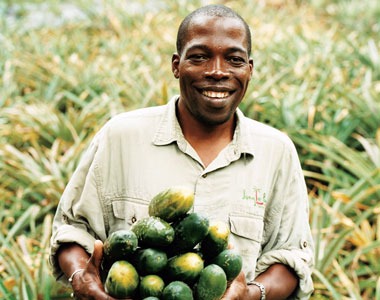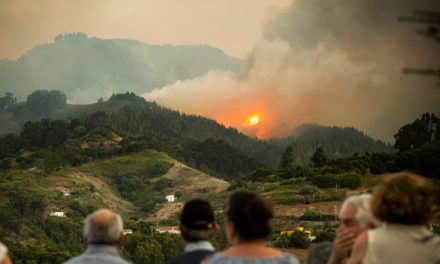Climate change is forcing real estate investors and vacationers to take a step back from their shoreline destinations and reconsider how they invest and travel.
As global warming forces itself upon various industries and presents numerous unprecedented challenges, real estate investors are realising how rising seas levels and storm-driven flooding is impacting properties and changing the way they invest.

“The traditional ‘Let’s see how close to the ocean we can build,’ and ‘how many trees we can fall’ in the process to create areas where people can come and get sunburned, that type of tourism, we’re learning is not something that’s sustainable,” says Sam Raphael.
Raphael is the owner of Jungle Bay Resort in Dominica, a small Caribbean island that pledged climate resilience after facing the horrors of Hurricane Maria in 2017.
Read also: Dominica: A model for climate resiliency
The resort owner has become a preeminent sustainable tourism developer in the Caribbean and has been named a top sustainable tourism leader by Virgin Holidays, Conde Nast Traveler and others because of the various environmentally friendly characteristics he has added to his resort.
“We need to recognise that we will need places to live where we’re not going to be overrun by tidal waves. We’re kind of stepping back from the shoreline. So, to speak, we’re looking at our water flow in development,” Raphael added.
According to a report by the New York Times, American home buyers, for example, are increasingly using mortgages that make it easier to stop making monthly payments and walk away from the loan if the home floods, becomes unsellable, or unlivable.
“More banks are getting buyers in coastal areas to make bigger down payments — often as much as 40 per cent of the purchase price, up from the traditional 20 per cent — a sign that lenders have awakened to climate dangers and want to put less of their own money at risk,” the report states.
A 2018 assessment by American investment bank Morgan Stanley found that in 2017, property and infrastructure damage from natural disasters accounted for about $330 billion in global economic losses.
According to data collected from American counties by Attom Data Solutions, a provider of real estate and property data, home sales in flood-prone areas grew about 25 per cent less quickly over the last five years than in counties that were not known for flooding.
In the past year, despite home sales increasing by 2.6 per cent nationally, Miami-Dade County saw a drop of about 7.6 per cent in high-risk flood zones, according to American housing data.
“Just now all developers need to move with some level of urgency towards the preservation of the environment,” Raphael said.
“I think we were right on point in being in this movement early on. Now that we have COVID-19, I think the aftermath of the pandemic will be that people will again be looking for things that are natural and safe.”
Aside from flooding, the 2018 Morgan Stanley report also outlines the more gradual climate risks investors should consider, including varying weather patterns such as drought and heat stress.
While not as dramatic or identifiable as a natural disaster, these forces can damage properties over time, leading to higher maintenance and operating costs.
The 2018 report emphasises the importance of assessing homes and future real estate investments for climate risks, such as the likely climate hazards the area faces.
It also recommends looking into insurance that specifically manages climate risks.
In 2012, the United Nations Environment Programme (UNEP) Finance Initiative established the Principles for Sustainable Insurance, which outlined a common framework for real estate industries around the world to address environmental, social and governance opportunities, including the risks of climate change.
The outline guides insurers to embed environmental criteria into decision-
making across businesses, including in risk management, which, in time, will necessitate a more direct approach to pricing climate risk.
Morgan Stanley said this move could help investors play an active role in their insurance planning, and bolster the resilience of real estate and infrastructure so they can preserve the long-term insurability of their most at-risk assets.

Resort owners like Raphael have already taken on this idea. Raphael limited construction on his Dominica resort that was close to the shoreline and said that people “want to go into a paradise that’s free from stress and the challenges of the time.”
“I think it’s key and this is becoming more of a commonplace, and hopefully, we can encourage other players to follow suit.”
This story first appeared in the 2021 print issue of Truly Belong under the title “Close to Shore”
- Commercial Real Estate’s Next Great Challenge is Climate Change - 15th April 2021
- Overlooking the Pandemic, Home Has Taken on a New Meaning for Some - 16th February 2021
- Athletes from across the world say Black Lives Matter - 28th August 2020






